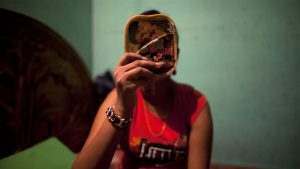Covid 19: Human Rights or Public Health
The Covid-19 pandemic is having its impact on each and every person around the world in one way or the other. The ones who are most affected by this pandemic are the populations which are vulnerable and have been exposed to health risks and social stigma even before the outbreak of the novel coronavirus. This global health crisis has exposed inequalities among key populations which already existed, but is now becoming more visible.
The examples listed below are just a few crisis to name which are being faced by vulnerable groups in Bangladesh:
- Limited activity in Rohingya camps: The Refugee Relief and Repatriation Commissioner (RRRC) has suspended all activities in the Rohingya Camps except emergency services. Apparently, water and road transport has also been suspended to the area. As the Rohingya refugees are widely dependent on relief from external agencies, the current condition of their sexual and reproductive health is a matter of concern, as it is uncertain whether contraceptives or MHM products are considered ‘emergency’ services or not.
- Closure of Daulatdia brothel: Sex workers of Daulatdia are completely dependant on customers for earning money as they have no other sources of income. As what is believed to be the largest brothel in the world has been closed, these workers are now worried as ‘they no longer have money to pay for food for themselves or their children’. Source: https://www.aljazeera.com/news/2020/03/bangladesh-sex-workers-appeal-funds-coronavirus-crisis-200323174908994.html

- Rise in domestic violence: As the governments in different parts of the world are enforcing a lockdown, people are forced to stay in their homes. For many people, home is not the safest place as it is where they become victims of domestic abuse and intimate partner violence. Activists in different countries like Brazil, Italy and China have reported a rise in cases of domestic violence. There have been no reports of domestic violence in Bangladesh after the government declared closure of offices, however, this does not mean that we should assume that there have been no incidents throughout the country.
Source: https://www.bbc.com/news/uk-england-leicestershire-52076978, https://www.theguardian.com/society/2020/mar/28/lockdowns-world-rise-domestic-violence?utm_term=RWRpdG9yaWFsX0d1YXJkaWFuVG9kYXlVS19XZWVrZW5kLTIwMDMyOA%3D%3D&utm_source=esp&utm_medium=Email&CMP=GTUK_email&utm_campaign=GuardianTodayUK
- Maternal and neonatal care: In low resource health systems, the COVID-19 is likely to create imbalance in the health care provision. Maternal and reproductive health services might become affected as life saving procedures such as Caeserian section and abortion can be delayed, and private spaces for women in labour and newborns may not be available.
Source: https://www.tandfonline.com/doi/full/10.1080/26410397.2020.1746065
- People with HIV/AIDS: People living with HIV/AIDS already face discrimination. There is a stigma against people with COVID0-19 too. So if a person with HIV/AIDS contracts the COVID-19, the discrimination faced by this person will become two fold.
- Impact on transgenders: Most of the transgenders are poor, and remain dependent on informal work for income. This crisis has interrupted their source of living, and many non-government organisations are collecting donations through social media in an attempt to temporarily provide for them.
This pandemic has become a tug of war between public health and human rights. Many human rights are being sacrificed for the sake of public health, without realising that a proper public health response is possible only when it is embedded within human rights. One way of ensuring this is by putting the most vulnerable communities at the center of response. Access to intersectional healthcare provision has been affected as transgenders, intersex people and people with disabilities may not get proper health care.
Watch Webinar by Sexual and Reproductive Health Matters (SRHM)- COVID-19: What implications for SRHR globally?


